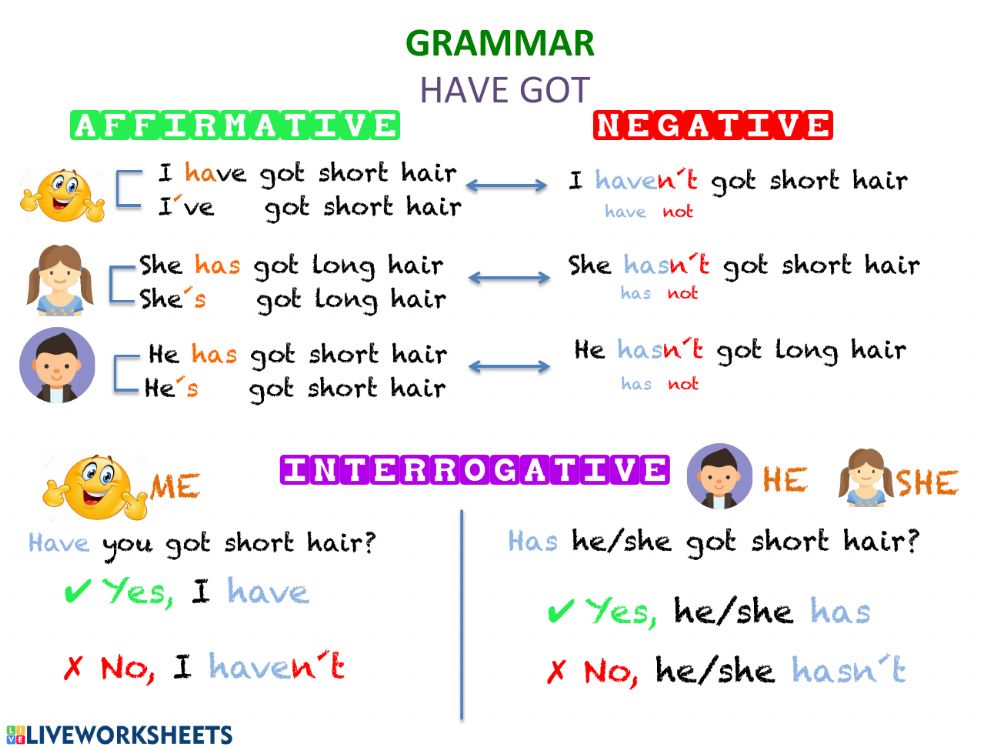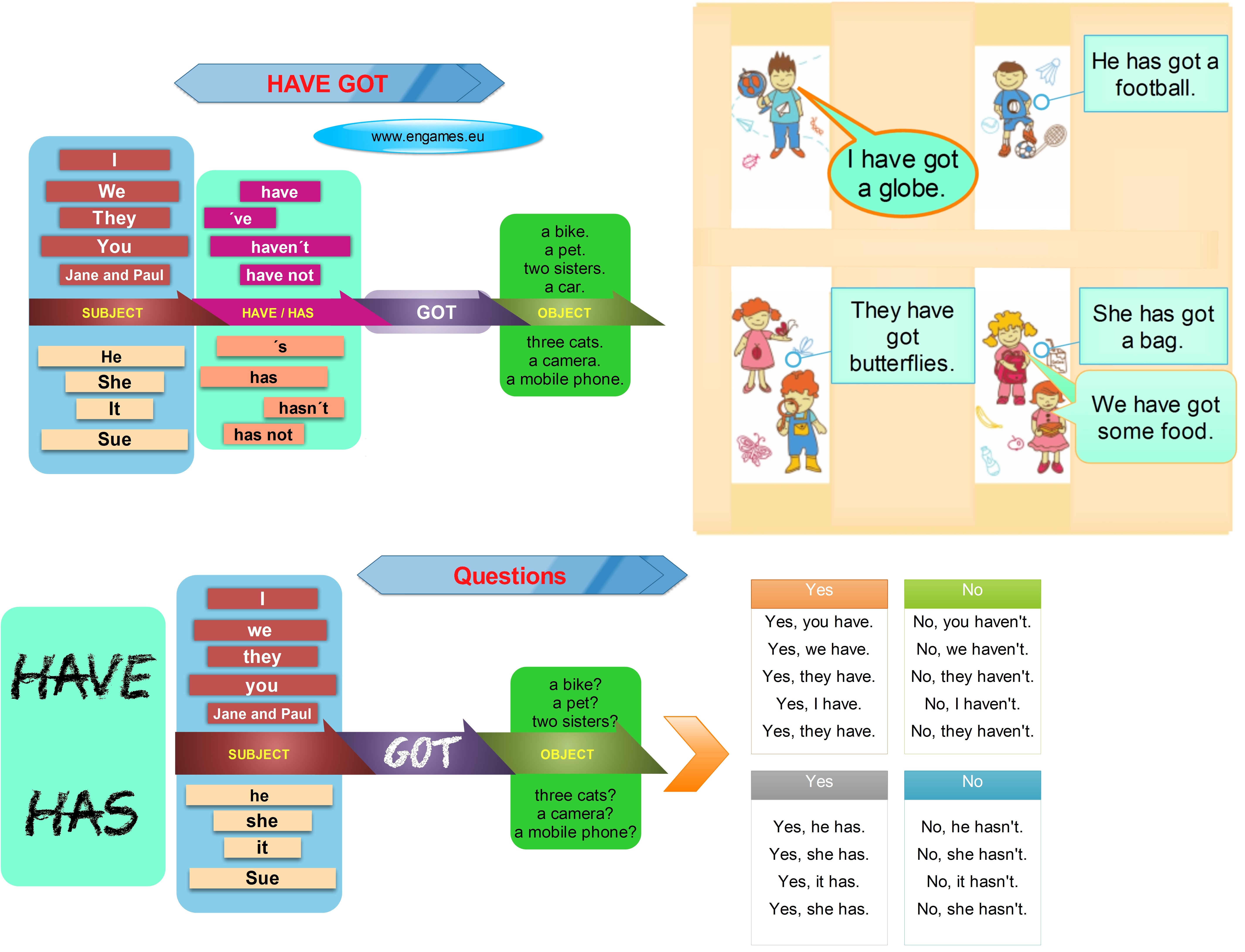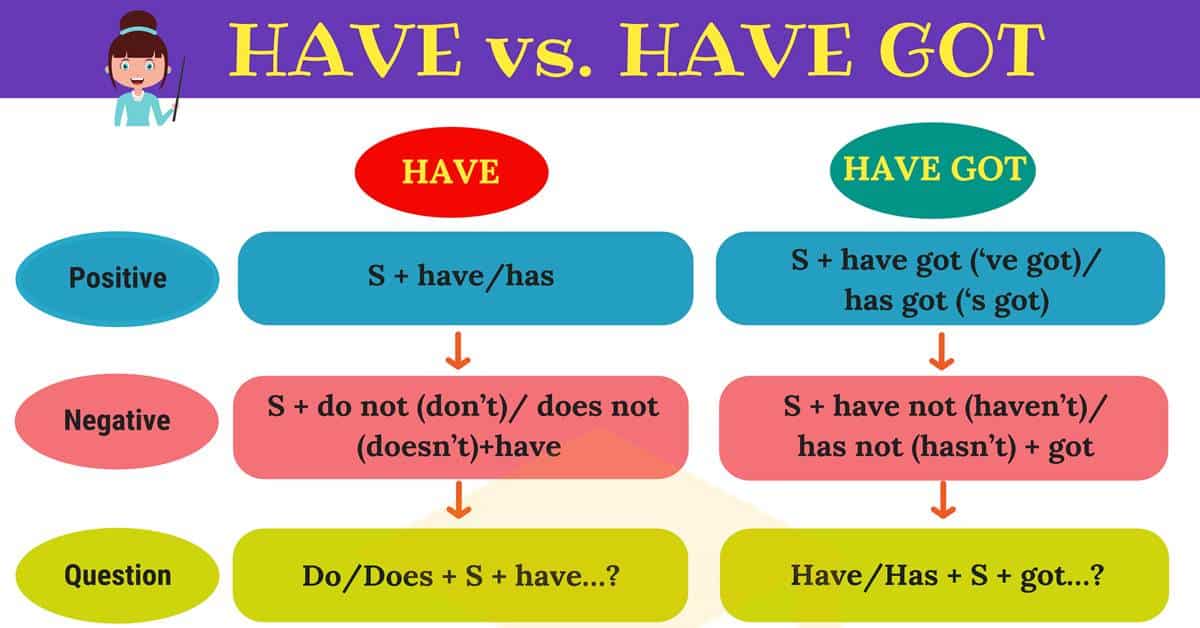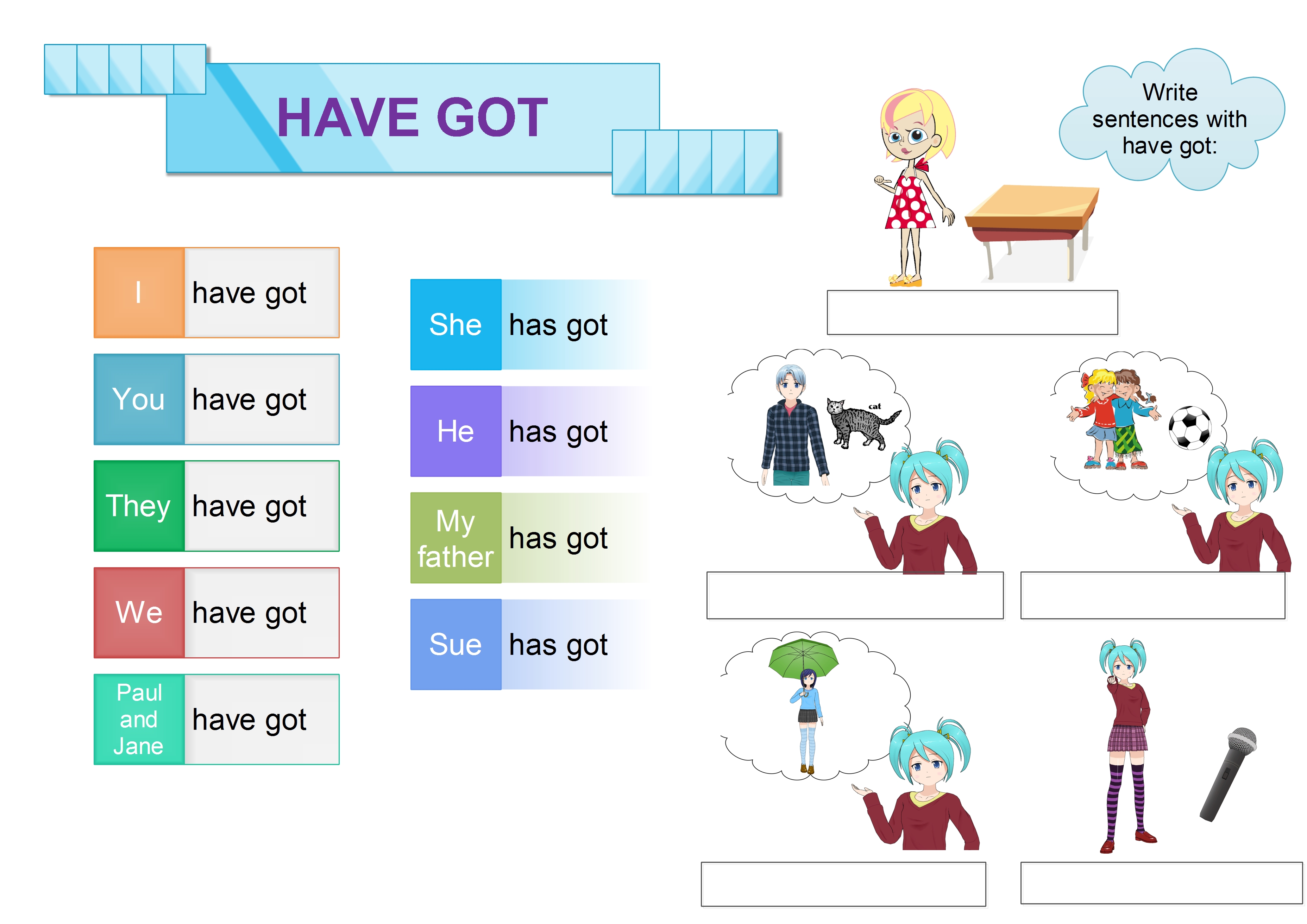
Verb HAVE GOT questions and short answers Games to learn English
Interesting. At least among many Brits, I've got is often a paraphrase for the stative I have in my possession (etc, as in I've got a bike / a new boat / ten minutes to spare / measles.). When used in the I have obtained (etc, as in I've got this splinter out of my finger at last, where many in the US would prefer 'gotten') sense, it feels like more of a true present perfect.

LATICHERTH VERBS
Have got to definition: . See examples of HAVE GOT TO used in a sentence.

Follow me! HAVE GOT VERB
de English Grammar Today Have got to and have to mean the same. Have got to is more informal. We use have (got) to here to refer to both verbs. Have got to and have to: forms Affirmative form Have (got) to comes before the main verb: You have to try these cakes. They are so good. It is often contracted, especially in speaking.

TO BE/ HAVE (GOT)
3 This question is related to these two posts (please read those answers too): "Get to do something" What is difference between GOT TO and HAVE TO For example: "I got to spend time with my wife." Does that sentence mean "I had the opportunity of spending time with my wife."? Or does it mean "Now I have to spend time with my wife."?

ENSEÑANDO CON ILUSIÓN HAVE GOT
The modal verbs "must," "have to" and "have got to" show that something is not optional; it is necessary. Must is the strongest and most serious modal verb of the three and is most common in writing. It is unusual to use "must" in questions. I must study tonight. Have got to is most common in informal speech. It is not used in.

Have got en inglés Ejercicios inglés online
Grammar Point must / have (got) to / must not / don't have to must / have (got) to / must not / don't have to Necessity and Obligation. Must and have (got) to are used in the present to say that something is necessary or should be done. Have to is more common in North American English, especially in speech:. You must be home by 11 o'clock. I must wash the car tomorrow.

Have got TestEnglish
I have to. He's got to. is a contraction of… He has got to. which is the same as. He has to. Let's look at the three ways of saying the same thing: I've got to tidy my room before I can go out. I have got to tidy my room before I can go out. I have to tidy my room before I can go out. Some more examples: We've got to study.

Have got, has got Interactive worksheet Learn english, English
Have got. We can use have got to talk about our things, family members and parts of the body.. I have got a new phone. He has got a sister. They have got brown eyes.. How to use it. Use have for I, you, we and they.Use has for he, she and it.We can contract the verb, especially when we're speaking. I have got long hair. = I've got long hair. He has got a new computer game. = He's got a new.

The verb have got Games to learn English Games to learn English
Colorado. English-US. Apr 7, 2014. #2. "Gotta" is really only suitable for casual speech and text-messaging. It's not a good idea to use it in serious writing unless you are writing a fictional dialog or something similar. "You got to help me" is substandard. People use "You've got to help me" in standard English. B.

الفرق بين have و have got درس خصوصي اللغة الانجليزية فورنونو
"Have got to" is used to express necessity and obligation. Examples: Drivers have got to get a license to drive a car in the US. necessity I have got to be at work by 8:30 AM. obligation Using "Have Got to" in Present, Past, and Future Most modal verbs behave quite irregularly in the past and the future.

Useful expressions Have got Platzi
Have got (have/has + got) is used to talk mainly about possessions or personal attributes. Give me some examples, please. Certainly, here you are: I've got a new computer. They haven't got any red chilli peppers. She's got long, brown hair. He hasn't got many friends. So the negative is have/has + not + got? Yes, but don't forget the contraction.

LestoEnglish Verb "To Have Got"
Have got to and have to: meaning Obligation Have (got) to is used to refer to obligations which come from outside the speaker: You've got to drive more slowly! We're in a 30-mile-an-hour zone. I've got to pay extra rent now because my friend has left the apartment. Spoken English:

Have got for elementary and weak students Games to learn English
Present simple: 'have got' Do you know how to use have and have got ? Test what you know with interactive exercises and read the explanation to help you. Look at these examples to see how we use have/has got. I've got a big family. We haven't got a garden. Have you got any pets? Try this exercise to test your grammar. Grammar test 1

Have got. Has got activities with li… English ESL worksheets pdf & doc
Have to and have got to. February 12, 2012 -. The structure have (got) to is used to talk about obligation. It has a similar meaning to must. I have got to get up early tomorrow. (= I must get up early tomorrow.) I have got to meet him. I have got to go now. Have got to can also be used to show certainty. This usage is very common in American.

Have got. Grammar exercises.pdf Verb
Grammar grammar faq have to vs. have got to have to semi-modals 'Have to' and 'have got to' mean the same but they have different levels of formality. In this lesson, we will learn all about them. What Is Their Main Difference? The main difference between ' have to ' and ' have got to ' is that ' have got to ' is more informal than ' have to .'
Have got has got online worksheet for 3RD GRADE Quizalize
3. Have and have got with an infinitive (to + verb) , to talk about obligation—like must: "I have got to study tonight.". "I have to study tonight.". 4. Have or have got with an object + verb to talk about causing or experiencing actions and events: "They had their car stolen last week.". 1. HAVE in Perfect Verb Forms.